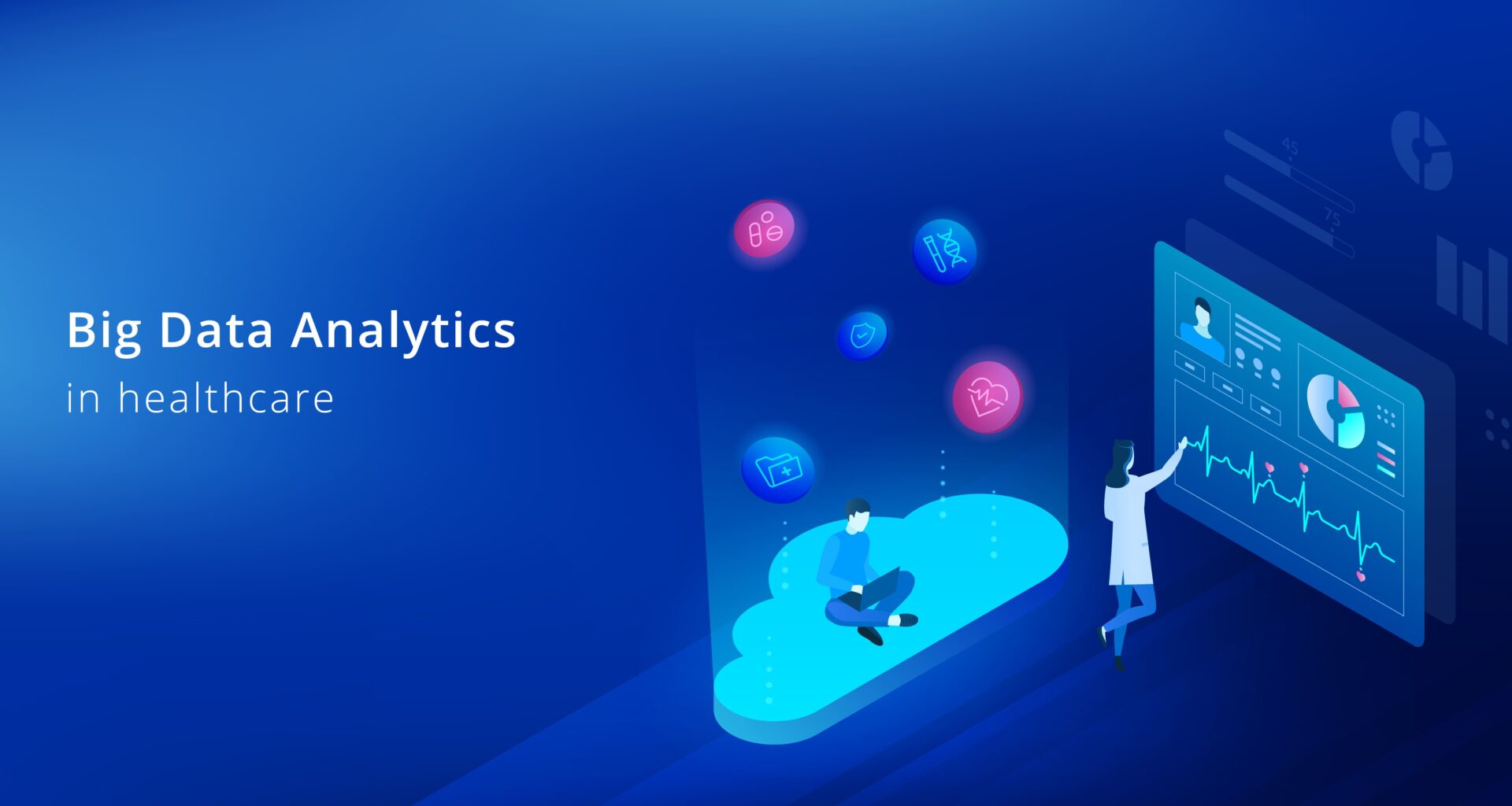The healthcare industry stands on the precipice of a monumental shift. No longer confined to traditional patient records and clinical trials, a new era of healthcare is dawning with big data. This vast information network is complex and encompasses a wide range of data. It includes everything from electronic health records (EHRs) to wearable device data and social determinants of health. The potential of this data is immense, as it can revolutionize how we diagnose, treat, and prevent diseases.
This blog outlines how big data personalizes care, predicts outbreaks, and fuels innovation to achieve what was deemed impossible a few decades back.
Content Index:
- From siloed data to a connected ecosystem
- Personalized medicine to tailor treatments to the individual
- Predictive power to anticipate disease outbreaks
- Accelerating clinical trials to facilitate efficiency and innovation
- Optimizing resources for maximum impact
- Artificial intelligence and the future of healthcare
- Outlining the challenges and opportunities in building a sustainable future
From Siloed Data To A Connected Ecosystem
Healthcare data has been fragmented across hospitals, clinics, and research institutions for decades, leading to data silos and hurdles in its management. As a result, meaningful insights were challenging to derive, and progress was hindered. However, big data, with its ability to analyze massive datasets from diverse sources, breaks down these data walls. Now, imagine a healthcare ecosystem where electronic health records (EHRs) seamlessly connect with genetic data, wearable devices continuously monitor vitals, and social determinants like income and environment paint a holistic picture of patient health. This interconnected web of information empowers healthcare professionals with unprecedented insights, paving the way for a new era of healthcare delivery.
Personalized Medicine To Tailor Treatments To The Individual
One of the most transformative applications of big data lies in personalized medicine. By analyzing a patient’s unique genetic makeup, medical history, and real-time health data, healthcare providers can now create treatment plans with laser-like precision. This application facilitates the development of targeted therapies that cater to the root cause of a disease for a specific individual, increasing the chances of successful treatment and reducing side effects. Imagine a future where a cancer diagnosis doesn’t translate to a one-size-fits-all approach but rather a personalized treatment plan informed by the patient’s unique genetic profile – this is the power of big data in action.
Predictive Power To Anticipate Disease Outbreaks
Big data isn’t just about analyzing the present; it’s about predicting the future. By spotting patterns and trends in large datasets, healthcare professionals can anticipate disease outbreaks before they occur. This empowers public health officials to take proactive measures like vaccination campaigns and resource allocation, potentially mitigating the impact of epidemics. Additionally, big data analytics can identify individuals at high risk of developing chronic diseases, enabling early intervention and preventative care strategies. This proactive approach translates to improved patient outcomes and reduced healthcare costs in the long run.
Accelerating Clinical Trials To Facilitate Efficiency And Innovation
Clinical trials, the backbone of medical progress, have traditionally been slow and complex. Big data is poised to change that. By leveraging patient data from diverse sources, researchers can identify potential participants more efficiently, streamline trial design, and analyze results more accurately. This approach accelerates drug development and allows researchers to target specific patient populations with relevant therapies. Big data also opens doors for innovative clinical trial designs, like virtual trials that leverage wearable data and remote monitoring, increasing accessibility and participation.
Optimizing Resources For Maximum Impact
In a world where resources are limited, care providers are constantly striving to deliver the best possible care while managing ever-increasing costs. Big data analytics is a powerful tool that empowers healthcare providers to make data-driven decisions around resource allocation. By analyzing healthcare utilization patterns and identifying areas of inefficiency, resources can be directed to where they are needed most. This ensures patients receive timely care and optimizes healthcare spending.
Artificial Intelligence And The Future Of Healthcare
The big data revolution goes hand in hand with the emergence of artificial intelligence and machine learning. These powerful technologies are transforming the healthcare landscape even further. Imagine AI-powered algorithms analyzing medical images for early signs of disease or ML models predicting potential drug interactions with unparalleled accuracy. The future of healthcare is bright and holistic, with AI and big data working in tandem to unlock groundbreaking discoveries and propel personalized medicine to even greater heights.
Outlining The Challenges And Opportunities In Building A Sustainable Future
While the potential of big data in healthcare is undeniable, challenges remain. Creating a healthcare ecosystem driven by data requires a robust infrastructure that allows for seamless exchange of information between healthcare providers and institutions. It is also essential to establish robust data governance frameworks and implement strict security measures to ensure the privacy and integrity of patient data. It is vital to equip healthcare professionals with the necessary skills. These skills include data analytics, enabling them to interpret and utilize big data insights effectively. This approach can help us achieve a future where big data is used optimally.
The healthcare industry is experiencing a big data revolution, which requires a collaborative effort from healthcare providers, researchers, technology companies, and policymakers. To maximize the potential of big data and accelerate innovation, open sharing of anonymized data, standardized data collection methods, and public-private partnerships are all crucial. These measures can ensure ethical and responsible utilization of big data for the betterment of public health.
What’s Ahead?
The big data revolution is transforming the healthcare industry at an unprecedented pace. By harnessing the power of vast datasets, healthcare professionals are now equipped to deliver more personalized, efficient, and effective care. Big data empowers care providers to navigate healthcare challenges with enhanced foresight and precision, from predicting disease outbreaks to optimizing clinical trials. To use data in a responsible and ethical way, we must focus on building a solid data infrastructure, prioritizing data security, and collaborating with stakeholders.













